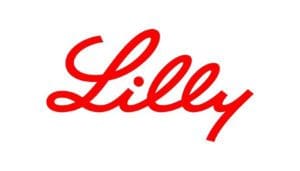 The FDA announced that it issued emergency use authorization (EUA) for monoclonal antibodies developed by Eli Lilly (NYSE:LLY) for treating COVID-19.
The FDA announced that it issued emergency use authorization (EUA) for monoclonal antibodies developed by Eli Lilly (NYSE:LLY) for treating COVID-19.
Eli Lilly’s bamlanivimab and etesevimab received authorization to be administered together for treating mild to moderate COVID-19 in adults and pediatric patients over 12 years old and weighing at least 40 kilograms (about 88 pounds), according to a news release. Bamlanivimab had already received an EUA in November 2020 for treating mild-to-moderate COVID-19 cases.
Authorization for the antibody treatments is for those who test positive for SARS-CoV-2 and are at high risk for progressing to severe COVID-19. The authorized use includes treating those who are 65 years of age or older who have certain chronic medical conditions. Authorization does not include patients who are hospitalized due to COVID-19 or require oxygen therapy due to COVID-19, as the antibodies may be associated with worse clinical outcomes when administered to such patients.
Dosage for the laboratory-made proteins designed to mimic the immune system’s ability to fight off harmful pathogens and block the virus’ attachment and entry into human cells will be 700 milligrams of bamlanivimab and 1,400 milligrams of etesevimab administered together.
Clinical trial data showed that use of bamlanivimab and etesevimab together significantly reduced COVID-19-related hospitalization and death during 29 days of follow-up compared to placebo. The safety and effectiveness of the treatment will continue to be evaluated after authorization, too.
The data was based on a randomized, double-blind, placebo-controlled clinical trial of 1,035 non-hospitalized adults with mild to moderate COVID-19 symptoms and high risk for progressing to severe COVID-19. Of the patients, 518 received a single infusion of bamlanivimab and etesevimab (2,800 milligrams each) while 517 received a placebo treatment with a primary endpoint of COVID-19-related hospitalizations or death by any cause during 29 days of follow-up.
Hospitalization or death occurred in 36 (7%) of patients who received placebo compared to 11 (2%) of patients treated with the antibody cocktail. All 10 deaths in the trial occurred in the placebo group.
“Today’s action, which provides another treatment for COVID-19, reflects the FDA’s strong commitment to working with sponsors to expand potential treatment options health care providers can use to fight this pandemic,” FDA Center for Drug Evaluation & Research acting director Dr. Patrizia Cavazzoni said in the news release. “The data supporting this emergency authorization add to emerging evidence that points to the clinical utility of neutralizing antibodies for the treatment of COVID-19 in certain patients. As part of our Coronavirus Treatment Acceleration Program, the FDA uses every resource at our disposal to make treatments such as these monoclonal antibodies available while continuing to study their safety and effectiveness.”